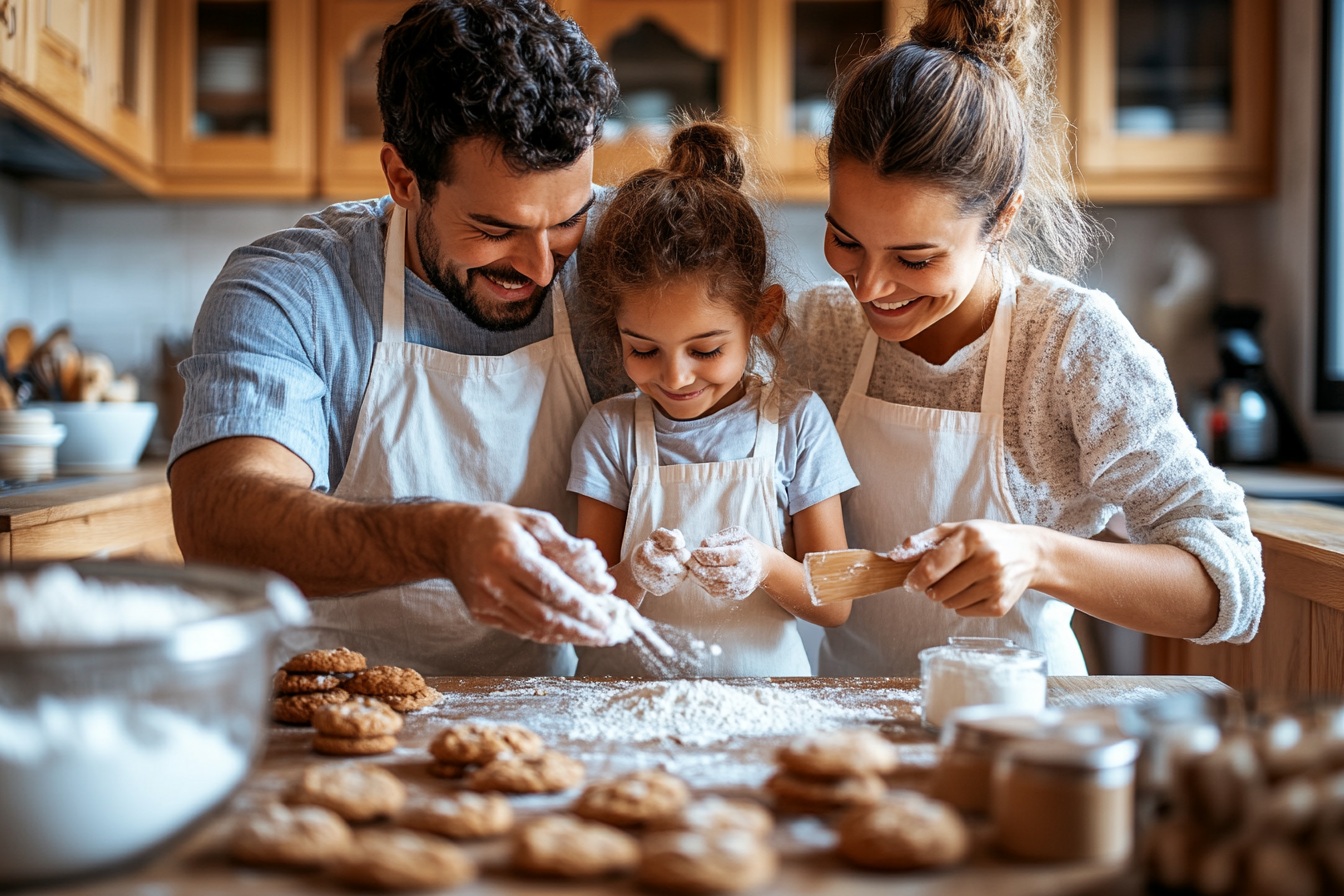Benefits for Life Skills and Health
Cooking is an essential life skill, but did you know it also offers amazing opportunities for learning and personal growth at every age? Whether your child is 5 or 14, getting them involved in the kitchen can foster independence, creativity, and even healthier eating habits. Let’s take a closer look at how cooking supports development—and what specific benefits it brings for different age groups.
Fosters Independence
Ages 5-7
At this young age, kids are exploring more of the world around them, and cooking is a fantastic way to introduce responsibility in a fun, safe environment. Simple tasks like stirring ingredients, sprinkling cheese on a pizza, or decorating cookies give little ones a sense of accomplishment. You’d be amazed at how proud a child can feel after making a snack for the family—even if it’s just fruit kabobs!
Ages 8-10
As kids get older, they’re ready to take on more complex tasks like following a recipe and measuring ingredients. They can make simple breakfasts or snacks on their own, which not only builds confidence but also fosters decision-making. Letting them plan and prepare a meal—perhaps even helping with grocery shopping—really puts them in the driver’s seat, preparing them for greater independence as they grow.
Ages 11-13
At this stage, kids are becoming quite capable in the kitchen. They can handle full meals, work a bit more independently with heat, and experiment with more advanced cooking techniques. Allowing them to take on larger responsibilities—such as planning and preparing family dinners— gives them practical experience that will serve them well as they continue to mature and move into adulthood.
Enhances Math Skills
You might not think of math when you think of cooking, but the two are closely linked! Following recipes involves understanding measurements, fractions, and even ratios. Every time your child adjusts a recipe or figures out how much of an ingredient they need, they’re practicing math without even realizing it.
Ages 5-7
For younger kids, cooking introduces them to basic math concepts. Counting cups of flour, measuring water, or setting the timer helps them learn numbers, fractions, and time management. The best part? They’re learning through hands-on activities that make math feel fun and relevant.
Ages 8-10
As their math skills advance, kids in this age group can start doubling or halving recipes, working with fractions, and learning about volume and weight. They might even get curious about the science behind ingredients—why does baking soda make some baked goods rise? It’s math and science rolled into one!
Ages 11-13
Older kids can dive even deeper into math by exploring things like recipe scaling, adjusting serving sizes, and converting measurements. They might also start paying attention to nutrition labels, understanding how to balance meals in terms of calories, fats, and proteins. Cooking gives them real-world applications for math in a way that’s engaging and useful.
Encourages Creativity
Cooking offers endless opportunities for creativity. From experimenting with flavors to designing beautiful plates, kids can let their imaginations run wild in the kitchen.
Ages 5-7
For the youngest chefs, creativity in the kitchen often comes in the form of decorating cupcakes or arranging fruits and vegetables into fun shapes. They’re developing fine motor skills while exploring different textures, colors, and flavors.
Ages 8-10
At this stage, kids are ready to start experimenting with their own ideas. Maybe they swap ingredients in a recipe, try making their favorite dish healthier, or invent a snack using whatever’s in the fridge. Cooking teaches them that there’s room for trying new things and learning from the results.
Ages 11-13
For older children, cooking becomes a more sophisticated creative outlet. They might try mastering a new cuisine, experimenting with flavor profiles, or plating food in aesthetically pleasing ways. The kitchen becomes their studio, and they can express themselves through the meals they create.
Promotes Healthy Eating Habits
One of the biggest benefits of cooking with kids is that it teaches them about nutrition and healthy eating habits in a hands-on way. When children participate in preparing their meals, they’re more likely to understand—and appreciate—what goes into a balanced diet.
Ages 5-7
At this stage, cooking helps kids identify different foods and encourages them to try new ones. By involving them in making salads or smoothies, you can introduce fruits and vegetables in a fun, engaging way. It’s all about making healthy foods appealing.
Ages 8-10
As kids become more involved in meal prep, they start learning about food groups and balanced meals. They might even help with meal planning, ensuring there’s a vegetable or whole grain on the plate. Cooking empowers them to take charge of their own health and make smarter food choices.
Ages 11-13
Pre-teens can start exploring more complex nutritional concepts, such as macronutrients, portion sizes, and the benefits of whole foods. They’ll gain an understanding of how food fuels their bodies, helping them make informed decisions that can lead to lifelong healthy habits.
Strengthens Family Bonds
Cooking together is a wonderful way to spend quality time as a family. It’s a collaborative effort that allows everyone to contribute, whether it’s preparing a big holiday meal or just making pancakes on a Saturday morning. Plus, sharing the results of your hard work—eating together—fosters a sense of connection and accomplishment.
No matter your child’s age, the kitchen is a place for learning, growing, and creating lasting memories. Whether they’re gaining independence, sharpening their math skills, expressing creativity, or building healthy habits, cooking offers a variety of benefits that will serve them well throughout their lives. So, why not invite your little chef into the kitchen today? It’s an investment in their future—one delicious meal at a time.

